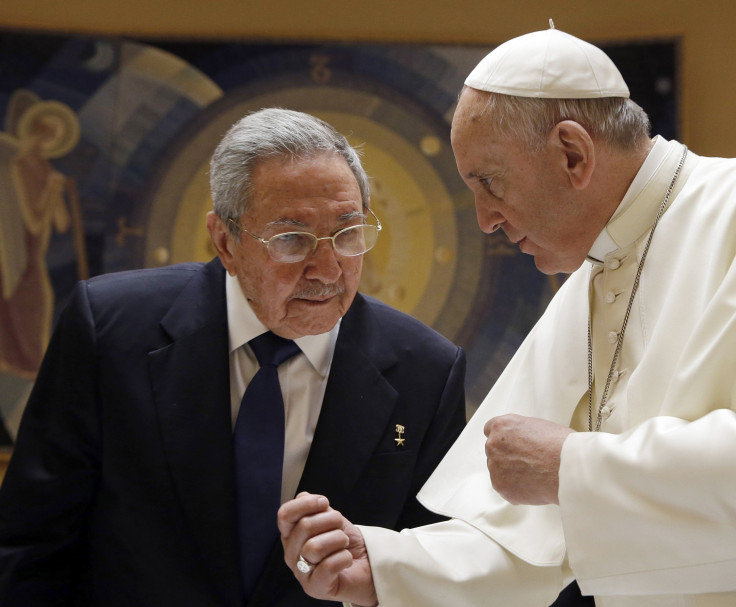
Catholicism could have a place in the Cuban Communist Party, Cuban President Raúl Castro said on Sunday following a meeting with Pope Francis at the Vatican. Castro has a meeting planned with the pontiff in September, but just couldn’t stay away. He popped by the Vatican on a trip back from a V-E Day celebration in Moscow. Why the adoration from a supposed atheist? Pope Francis smoothed the way for the recent detente between the U.S. and Cuba in recent months, a political “miracle” that could unleash economic and social marvels for Cubans. Castro is so grateful he seems ready to convert or, more accurately, go back to the church.
"I am very happy. I have come here to thank him for what he has done to begin solving the problems of the United States and Cuba," Castro, 83, told reporters following the exceptional Sunday audience, which ran almost an hour.
In the wake of the historic talks catalyzed by Pope Francis, he has been finding common ground with the Catholic Church. Like his brother Fidel, Raúl Castro was baptized and raised in the Catholic tradition. He points out that he was educated in a Jesuit school, the order where the current Pope began his career. Castro says that he’s been reading Pope Francis’ sermons and religious commentaries. His agreement with the pontiff, especially on aiding the poor, resonate with Castro, and it could propel increased religious freedom on the island.
"I am a communist of the Cuban Communist Party," Castro said Sunday. "The party never allowed the believers. Now we are allowing that believers also be part. This is an important step."
Catholic worship isn’t prohibited in Cuba, but it's highly discouraged by a hardline secular state. Fidel Castro softened that line in 1998 by inviting Pope John Paul II on the first papal visit since the Cold War. On that visit, Paul II criticized the U.S. economic embargo of Cuba. Raúl’s government continued to soften relations with the Vatican after Fidel stepped down in 2008. For example, in 2013 his government approved construction of the first new Catholic Church since the 1959 revolution.
"I will resume praying and turn to the Church again if the Pope continues in this vein," Castro said, adding that he was not just being polite.
© 2025 Latin Times. All rights reserved. Do not reproduce without permission.





